

Why are there always pay gaps between men and women?
Jobs that have a predominantly female workforce are generally less well paid than those held by men. This is what we call systemic discrimination, which continues because of stereotypes, bias, and beliefs that have taken root over time. What is considered as natural women’s work is not recognized for its true value. It is therefore crucial that we correct wage gaps between “female” and “male” jobs. Quebec society passed a law years ago to correct this historical injustice.
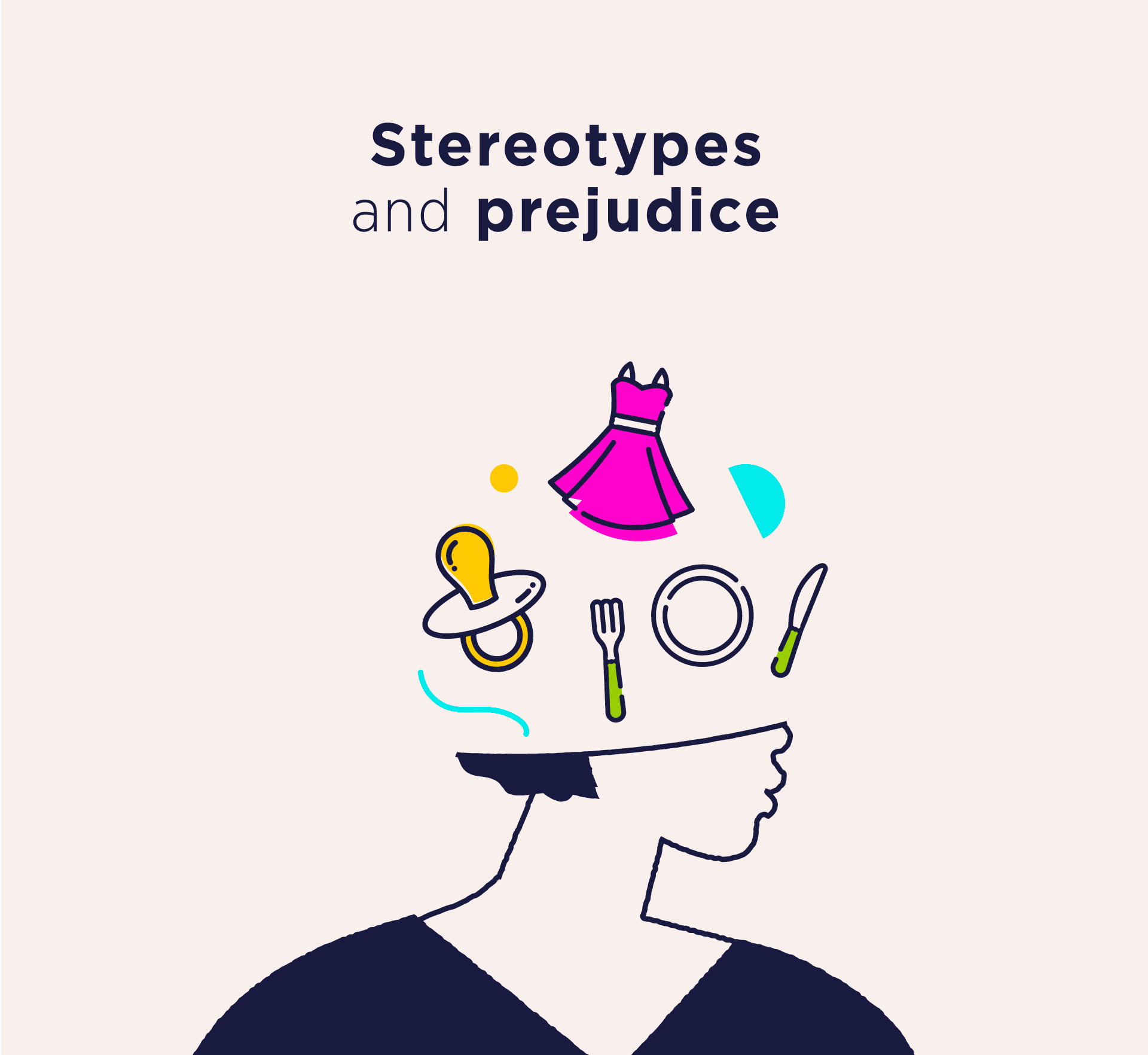
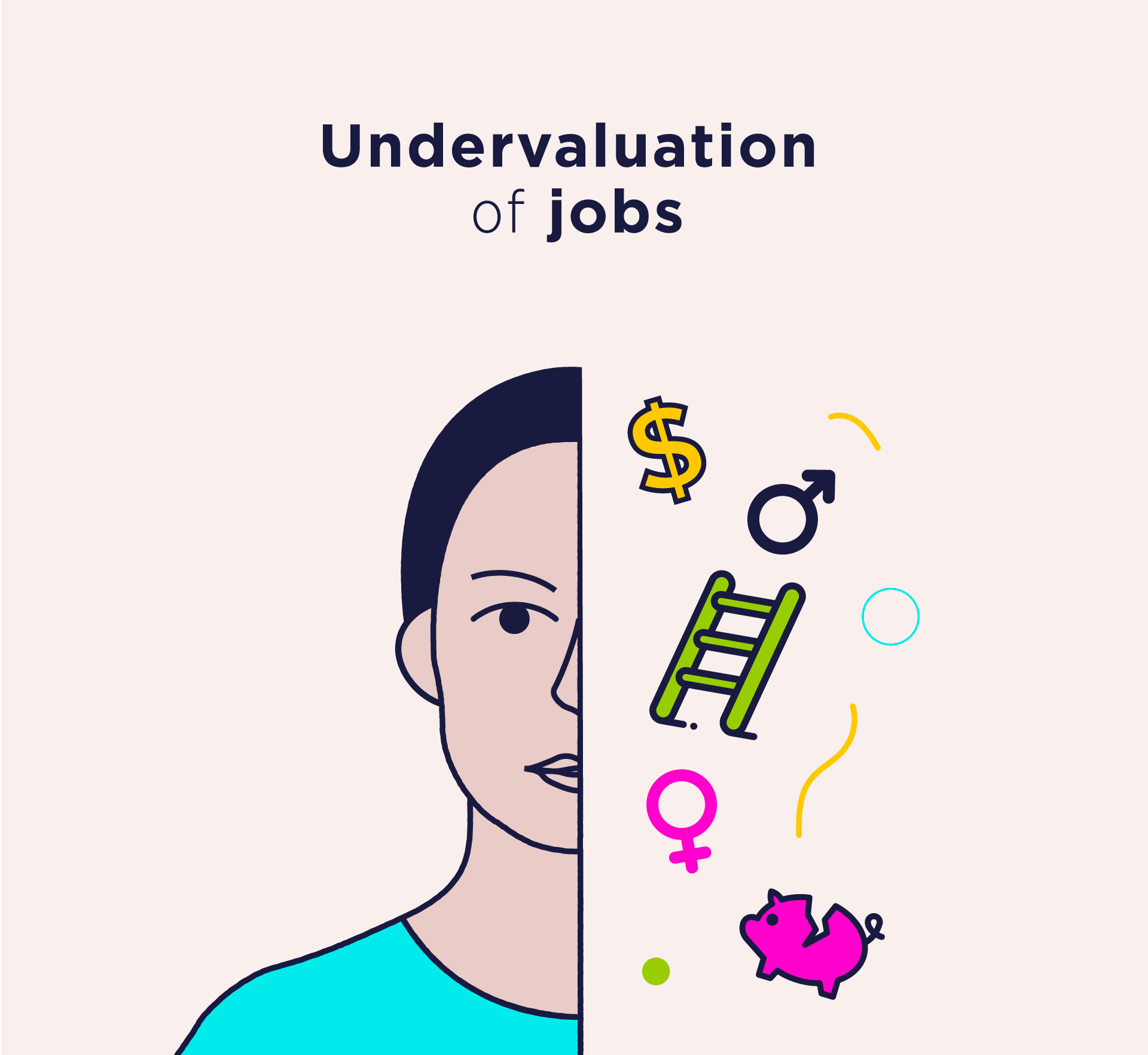


Section 1
The purpose of this Act is to redress differences in compensation due to the systemic gender discrimination suffered by persons who occupy positions in predominantly female job classes.
Differences in compensation are assessed within the enterprise, except if there are no predominantly male job classes in the enterprise.
This Act applies
- to every employer whose enterprise employs 10 or more employees, be they private, public or parapublic;
- to all employees, men and women, who have a predominantly female job, whether they work full-time, part-time, or have a temporary or occasional status, and whether they are unionized or not.
It is important to note that enforcing the Act in small businesses or non-unionized environments can be difficult because it depends on the will of the employers and their ability to set up a pay equity program. This is one of the reasons many women who work in the private sector are still subject to this discrimination.
The Division de l’équité salariale de la Commission des normes, de l’équité, de la santé et de la sécurité du travail ( https://www.cnesst.gouv.qc.ca/fr/equite-salariale ) is responsible for applying the Act by supporting employees, unions, employers and the ministère du Travail. It can also conduct investigations, set up mediation, handle complaints and disputes, issue recommendations and determine what measures to implement.
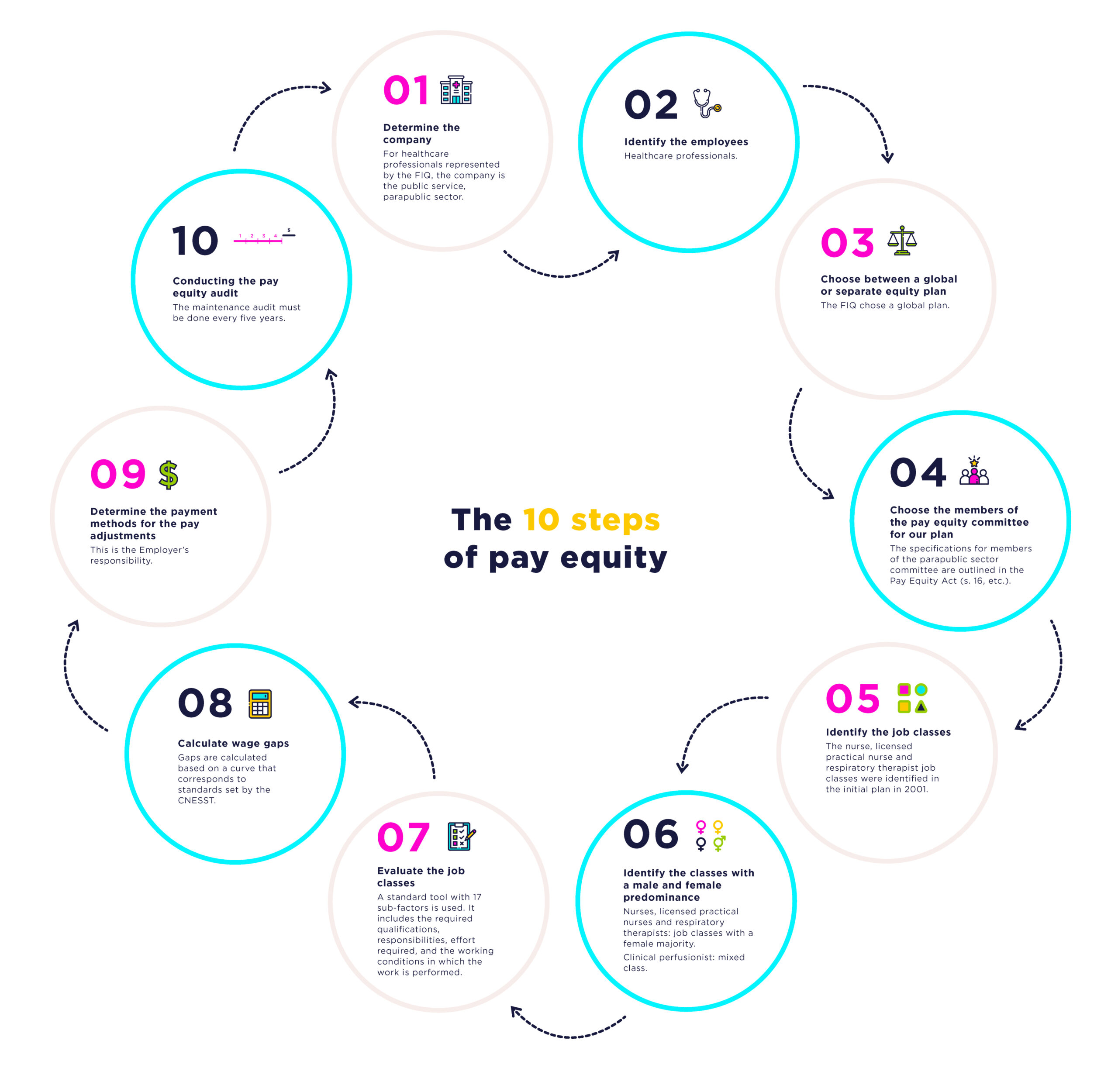


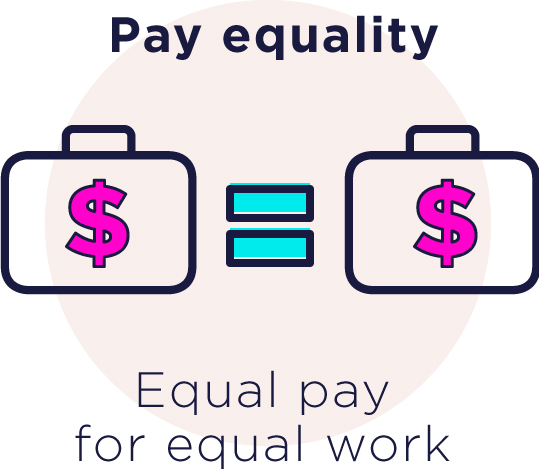
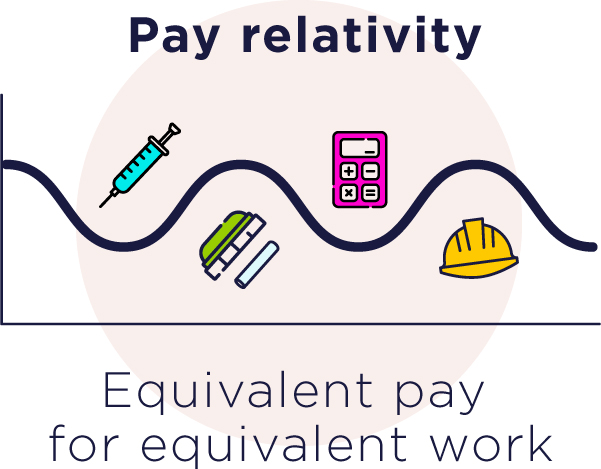
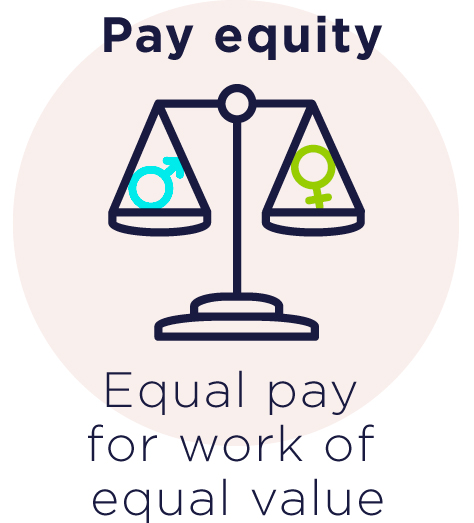
Maintaining pay equity is a process
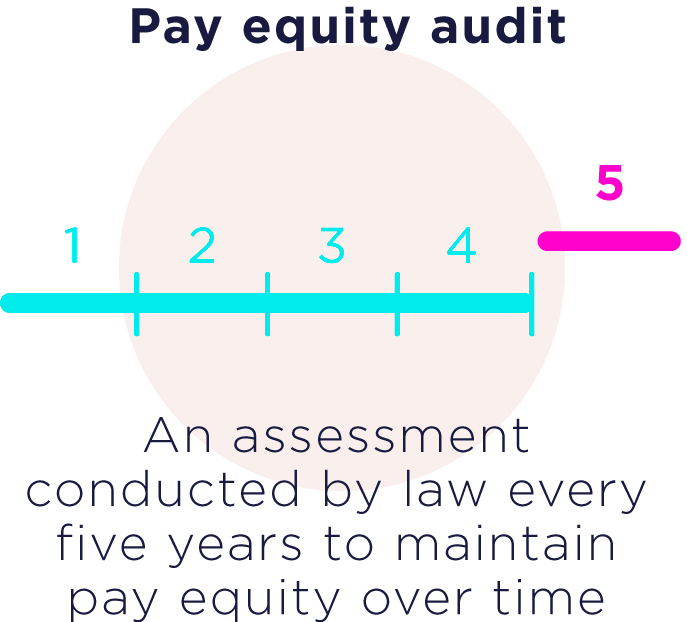
The assessment is conducted by law every five years to maintain pay equity over time and thus prevent discrimination.
Workplaces and jobs evolve and the enduring sexism in society can influence the value of jobs. Here are the questions we ask to maintain job values:
Have changes occurred in the last five years?
- Were jobs created?
- Was a collective agreement negotiated?
- Were labour laws amended?
- Were professional order requirements changed?
- Were training requirements changed?
Did these changes create wage gaps between predominantly male and predominantly female job classes?
Yes? Then salaries are increased accordingly. Never lowered.
To find out more:
« Le point sur l’équité salariale », Ça s’explique, Radio-Canada